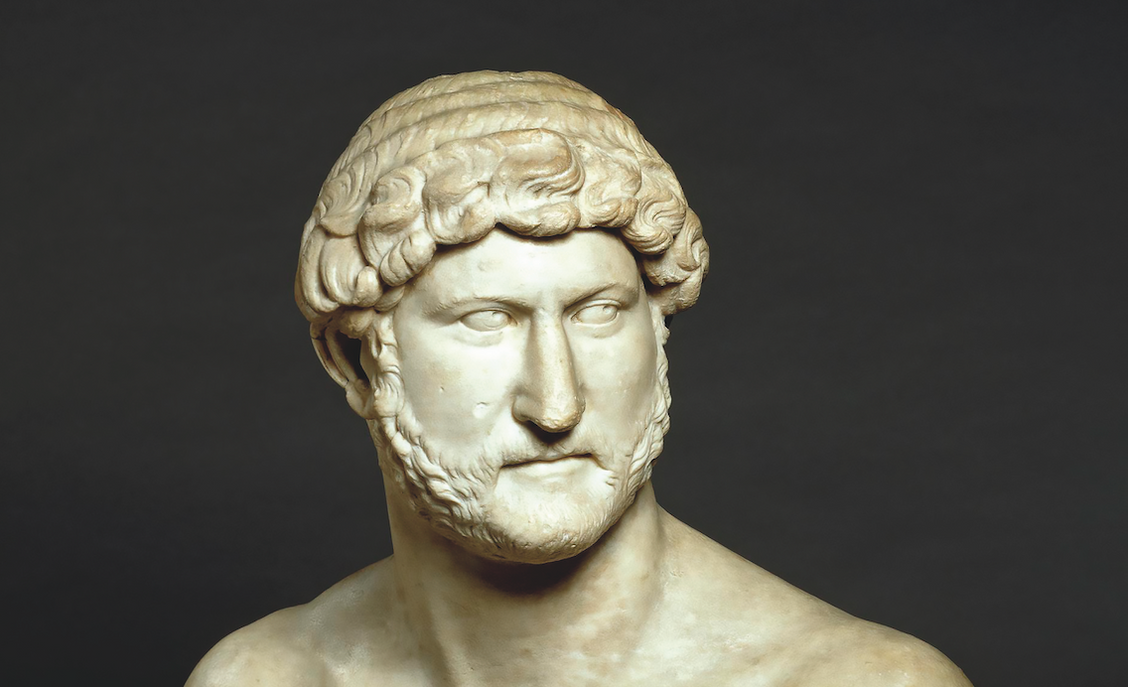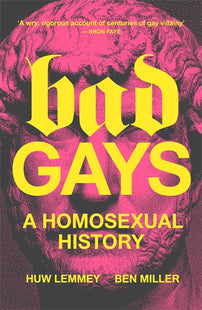Bad Gays: a Letter from the Editor
"This is without a doubt one of the best and most important books I have ever worked on, and I am so happy to share it with you."

Leo Hollis is the editor of Bad Gays: A Homosexual History by Huw Lemmey and Ben Miller, on sale May 31 and a selection in our Book Club. See our spring/summer book club selections.
It is coming up to Pride month again, and it is necessary to watch with dead eyes as investment banks, estate agents, software behemoths, the police, and even the army, wrap themselves in the Rainbow flag, gaywash their various forms of discriminatory violence, book the biggest float and hand out whistles and pens to a disbelieving crowd. These enterprises want to show that by embracing gayness, they are beacons of goodness. What the actual fuck?
Such a travesty forces us to ask: What is the purpose of the history of homosexuality? Who is it for? What stories does it foreground, and which ones get pushed into the wings?
At the beginning of Bad Gays, the two authors, Huw Lemmey and Ben Miller, tell the familiar tale of Oscar Wilde. The playwright who suffered ignominy and a tragic downfall following his libel trial and prosecution for gross indecency is rightly remembered as an extraordinary figure within the chronology of ‘the love that dare not speak its name’. He will never be forgotten, and his life will be woven into every story. Perhaps even a cliché? But, the authors ask, what about Wilde’s lover, Lord Alfred Douglas: ‘who will speak for Bosie?’
This is without a doubt one of the best and most important books I have ever worked on, and I am so happy to share it with you.
Bad Gays sets out to recast this history of homosexuality. Based upon a hugely popular and irreverent podcast, the book takes the lives of fourteen historical figures who are often remembered not for their virtue, nor their sexuality. Hadrian was an emperor and famous wall builder, who also had a thing for Greek boys, and sacrificed his lover Antinous in the Nile to make him a God. James I sat uncomfortably on the British throne, was distracted by his stable groom, whom he slathered over and made a Duke. Roger Casement was one of the bravest anti-imperial campaigners of his generation but was prosecuted for treason, his revealed homosexuality used as proof of his derangement. Complex heroes like Lawrence of Arabia were haunted by their desires. Meanwhile, what was the relationship between homosexuality and the early years of Nazism in Weimar Germany? And how can you tell the story of gay liberation in America in the 1960s and 70s without including the life of shithound lawyer Roy Cohn?
Each chapter of this book takes on a historical figure – coming up to the present day with nationalist writer Yukio Mishima, anthropologist Margaret Mead, architect Phillip Johnson, gangster Ronnie Kray and far right Dutch politician, Pym Fortuyn – in order to complicate the comforting, received wisdom that history bends towards justice. But the book does this not for its own sake. Rather, it sets out to refashion a more inclusive, radical and generous understanding of our past, and our possible futures.
And did I say that the book is joyfully entertaining, filled with details and asides? For example, the dangers that great men face when they fall for the allures of evil twinks. How Pietro Aretino risked death by writing smutty verse. Mead’s methods of getting rid of her lovers. Why FBI agents started to call their boss ‘J.Edna’ Hoover.
While the book speaks for Bosie, I am pretty sure that it is a book that Oscar Wilde would have clasped to his chest. He would have embraced the wit, ambition and clarity of the argument. In his last years he would probably have seen himself as a bad gay and found sympathy and reason in what Lemmey and Miller set out here, as well as the hope.
I quote from the afterword, a brilliant piece of writing that still reaches deep inside me and offers inspiration and courage:
We do not get to choose who we are but we do get to choose how, and with whom, we dance: what queerness, what faggotry, what transness, what gender trouble and abolition will be for us and with us and to us. The past is still with us; the revolutions of the queer future beckon.
Leo Hollis
London, May 2022
